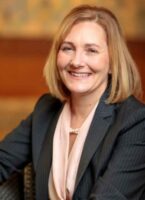
I recently returned from the Association for Medical Education in Europe (aka AMEE) Conference in Vienna, Austria. AMEE is an international conference that focuses on innovation, emerging global issues, and evidence-based best practices in medical education. I have the privilege of attending this conference because Washington University School of Medicine is a member of the Best Evidence Medical Education Collaborative (bet you didn’t know that). BEME is responsible for developing, reviewing and publishing systematic reviews of medical education topics. I represent us on the Board and Review Committee and Jan Hanson, PhD, EdS leads our collaborative site. If you are interested in learning more about systematic reviews, participating as a reviewer of systematic reviews, or performing a review yourself, reach out to Jan.
While at AMEE, I was exposed to a variety of ideas and research results, but one that has stuck with me is threshold concepts. Threshold concepts are things that we learn that transform our thinking and, as a result, who we are. Once we learn them, we never really see the world in the same way- they transform us and we cannot go back to who we were before. Ray Land has described threshold concepts in multiple professions, including healthcare. In his opening plenary, he talked about the transition that occurs in the anatomy lab as we move from seeing a person who has died to deeply investigating the parts and pieces that make them up- from the overwhelm of that first encounter with a cadaver to the routineness that follows in the subsequent months. For many of us, this is the first step in the professional distancing that some believe is necessary to do the work of a physician.
For me, some of those threshold concepts have included: the birth of my first child, the death of my first primary care patient, the first mistake I made that caused harm, and the first time I was responsible for making a difficult or unpopular decision as a leader. You get the idea. These are some of the many threshold moments that changed me and morphed me into the person, physician, educator and leader I am now (for better or worse). Similarly, all of our learners experience these threshold concepts as they move through training and develop their own identities as a professional. The process by which they do this is called professional identity formation and it was a core topic at the last curriculum retreat. The presentations at AMEE regarding threshold concepts reinforced for me the critical importance of attending to these moments, reflecting on them, discussing them, and coaching learners and each other through them. For they are, by definition, transformative, irreversible, and troublesome. Critically, they appear to be more effective when shepherded by a coach, mentor or teacher.
So, this month, I simply wish to thank you for all you do to care for and support our learners as they navigate their way through these threshold concepts. We will see this idea rise as an important element of the Gateway Curriculum, but just knowing about it and attending to it now as teachers is the most important for step. So, I leave you with the following quote in case it resonates with any of you as we begin this new academic year: “If we don’t change, we don’t grow. If we don’t grow, we aren’t really living.” Gail Sheehy